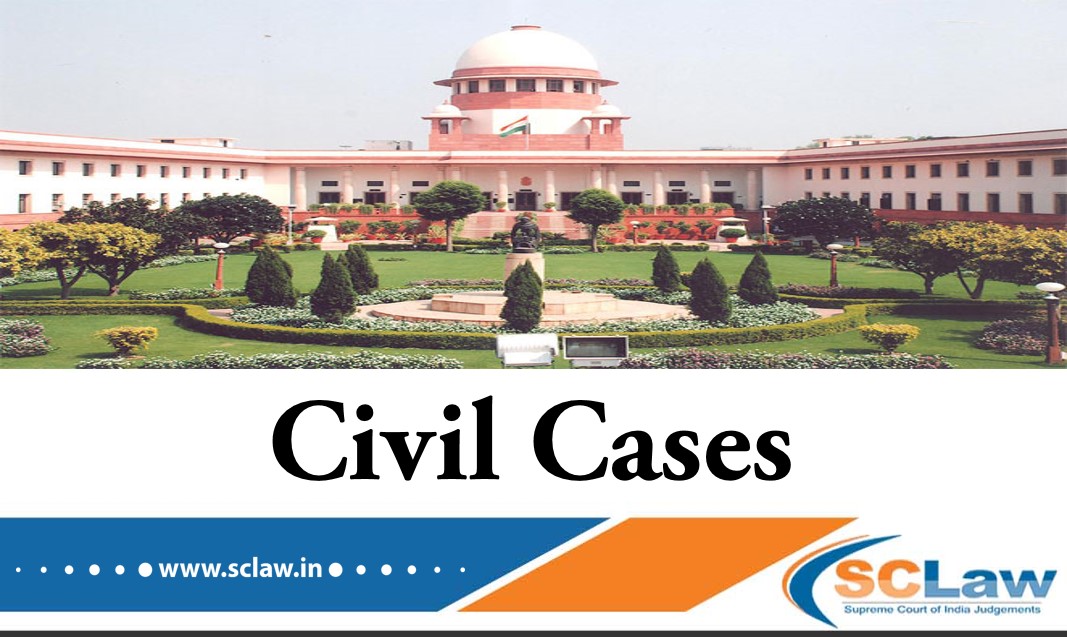Statement of Witness—The improper admission or rejection of evidence shall not be ground in itself for a new trial or reversal of any decision
(2017) 99 ACrC 982 : (2017) 174 AIC 257 : (2017) 3 AICLR 227 : (2017) AIR(SCW) 1606 : (2017) AIR(SC) 1606 : (2017) AllSCR(Crl) 908 : (2017) 2…
Damages–Electrocution–Compensation–Young boy of 8 years got electrocuted with high tension live wire while going through the fields-His both the arms were amputated and he suffered 100% disability
(2017) AAC 563 : (2017) 1 ACC 400 : (2017) ACJ 701 : (2017) 171 AIC 126 : (2017) AIR(SCW) 718 : (2017) AIR(SC) 718 : (2017) 121…
Accident—Disability—Multiplier method should be applied rather than awarding lumpsum amount.
(2017) 1 ACC 438 : (2017) ACJ 979 : (2017) 171 AIC 33 : (2017) AllSCR 646 : (2017) 121 ALR 452 : (2017) 1 AnWR 220 : (2017)…
Tenant parted with possession in favour of his son-in-law by entering into a partnership agreement without consent of landlord-This relationship a not merely of a close relative and was not a casual arrangement-It amounted to sub letting
(2017) 172 AIC 263 : (2017) AIR(SCW) 1057 : (2017) AIR(SC) 1057 : (2017) AllSCR 1625 : (2017) 2 ApexCourtJudgments(SC) 415 : (2017) 2 ARC 166 : (2017) 3…
Constitution of India, Article 227–Revision Petition–Limitation– ln the absence of any limitation period, if the petition is filled with some delay but at the same time, the petitioner gives satisfactory explanation thereof, the petition should be entertained on merits.
(2017) AAC 862 : (2017) 2 ACC 853 : (2017) ACJ 977 : (2017) 172 AIC 245 : (2017) AIR(SCW) 965 : (2017) AIR(SC) 965 : (2017) 121 ALR…
Eviction—Heir of Tenant—Brother of deceased lady tenant does not fall within definition of’ family’ Succession—Female Hindu—The property inherited from the husband and father-in-law would devolve upon the heirs of husband/father-in-law from whom she inherited the property and not to her parental relative.
(2017) 172 AIC 145 : (2017) AIR(SCW) 915 : (2017) AIR(SC) 915 : (2017) 2 AllLJ 685 : (2017) 5 ALLMR 468 : (2017) 122 ALR 40 : (2017) 2…
Reinvestigation—After taking of cognizance, Magistrate cannot suo moto issue directions or on the request or prayer of the complaint/Informant for reinvestigation
(2017) 98 ACrC 907 : (2017) 171 AIC 1 : (2017) 2 AICLR 322 : (2017) AIR(SCW) 774 : (2017) 1 AIRJharR 848 : (2017) AIR(SC) 774 : (2017) AllSCR(Crl)…
Dowry demand—Customary gifts of gold and clothes to husband cannot be termed as dowry demand. Dowry Death—Demand made about two years prior to Incident— Would not satisfy the requirement of “soon before her death”.
(2016) 94 ACrC 27 : (2016) 160 AIC 94 : (2016) 2 AICLR 142 : (2016) AIR(SCW) 882 : (2016) 2 AirKarR 257 : (2016) AIR(SC) 882 : (2016) AllSCR(Crl)…
FIR–Where a Magistrate does not explicitly directs to register a FIR, but directs for investigation, the Police should register a FIR.
(2016) 94 ACrC 494 : (2016) 161 AIC 246 : (2016) 2 AICLR 412 : (2016) AIR(SCW) 814 : (2016) 1 AIRBomR(Cri) 708 : (2016) AIR(SC) 814 : (2016) ALLMR(Cri)…
Law Officers—Appointment of—Directions issued to State of Punjab and Haryana to frame policy and till then a selection committee would short list the applications and recommend it to committee of Judges which would further be sent to Chief Justice for his views—State Government shall then appoint the candidate on basis of views expressed by Chief Justice on suitability—All fresh and re appointments to be done under this process.
2016) 6 ADJ 14 : (2016) AIR(SCW) 1629 : (2016) AIR(SC) 1629 : (2016) AllSCR 1795 : (2016) 3 AllWC 2846 : (2016) 1 BBCJ 567 : (2016) 3 GujLH…















